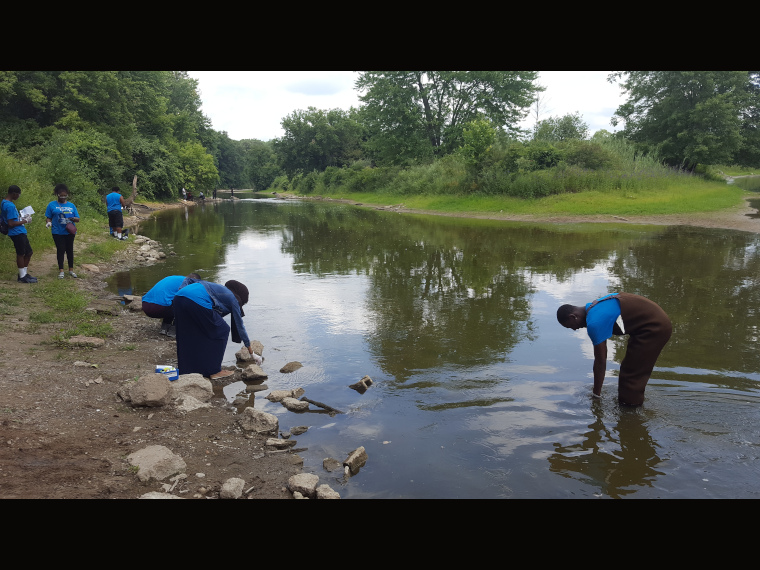The North American Association for Environmental Education (NAAEE), in partnership with the National Oceanic and Atmospheric Administration (NOAA) and supported by the U.S. Department of Education, is awarding $2.35 million to 29 environmental education organizations that will partner with NOAA to provide enriching after school watershed-related STEM (science, technology, engineering and mathematics) projects. These grants will support programming for a total of 91 local 21st Century Community Learning Centers (21st CCLC) sites and their students, many of whom live in high-poverty and underserved areas. The 29 selected projects are serving 17 states, ranging from Alaska to Florida. These Watershed STEM Education Partnership Grants allow environmental education organizations to collaborate directly with the 21st CCLC sites on the design and implementation of locally relevant, out-of-school-time programs that develop students’ environmental literacy and leadership skills as they improve their communities. The funding is provided by the U.S. Department of Education and administered by NAAEE.
Students will learn about STEM while also building leadership and advocacy skills by participating in exciting hands-on learning activities and connecting to nature. Due to current public health guidelines, implementation at some sites may not be immediately possible. In the meantime, watershed STEM grantees are offering virtual professional development opportunities and planning with partners to ensure that their projects are tailored to evolving partner and community needs.
“This is a great opportunity to immerse our students in STEM activities that extend beyond their school day,” said Aimee Phillips, coordinator of student programs for the Genesee Intermediate School District.
“We always look for quality experiences for our students and this partnership between the Flint River Watershed Coalition, and our GISD 21st Century CLC programs will provide our students educational opportunities to cultivate their curiosity and creativity, give them the chance to work with their peers as a team, investigate and use critical thinking and problem solving skills through experimentation connected to their local waterways,” Phillips added.
“Our current situation offers an opportunity to become even more innovative and adaptable to our youths’ ever-changing needs while fostering access to the outdoors at a time when they need it most,” said Autumn Mitchell, program manager.
As some school districts consider reopening, Watershed STEM grantees and partners are working with their communities to determine whether moving classrooms outdoors may present opportunities for safer educational experiences in the future.
Staff will also gain from the partnership, strengthening both environmental literacy and teaching skills. NOAA and 21st CCLC partners will deliver authentic STEM experiences that use components of the NOAA Bay Watershed Education and Training (B-WET) Meaningful Watershed Educational Experience (MWEE) model along with other NOAA assets and expertise.


